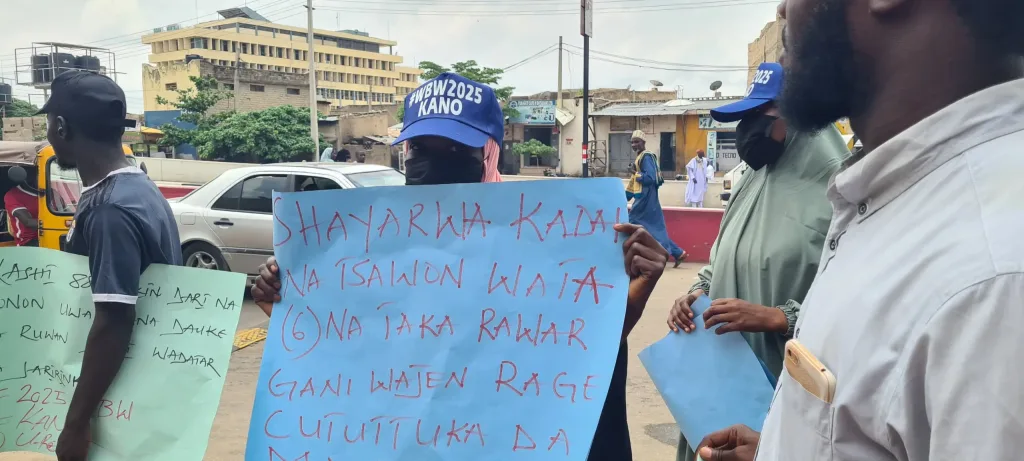Youth activists in northern Nigeria’s Kano State amplified calls for improved breastfeeding practices during a series of public campaigns, linking inadequate infant feeding to preventable childhood illnesses. Organized by UNICEF-supported U-Reporters and local youth groups, the events marked World Breastfeeding Week 2025, with advocates urging mothers to prioritize breastfeeding for up to two years to bolster children’s health.
Speaking at the densely attended Kofar Nasarawa roundabout rally, Jibril Umar, leader of UNICEF’s U-Reporters initiative, underscored the lifelong benefits of sustained breastfeeding. “A full 24 months is critical for a child’s development. Falling short can compromise immunity and lead to avoidable health challenges,” he said, emphasizing that conditions like malnutrition and infections are often tied to insufficient breastfeeding. Umar urged mothers to adopt hygiene practices and mental preparedness, adding that maintaining maternal health through nutrients like immune boosters reduces risks of transmitting illnesses during feeding.
The campaign, which targeted public spaces across Kano’s bustling neighborhoods, sought to shift cultural attitudes and misinformation. “This is about securing children’s futures from the start,” Umar noted, stressing that broader societal support is needed to normalize extended breastfeeding. Among the strategic rally points were high-traffic zones near the Emir’s Palace, Abubakar Rimi Market, and major thoroughfares like Ahmadu Bello Way and Lagos Street, ensuring visibility among diverse communities.
Umar also appealed for stronger government engagement, stating that sustained advocacy requires institutional backing. “Authorities must integrate breastfeeding education into local health agendas to reach every household,” he said. While the World Health Organization recommends breastfeeding until age two alongside complementary foods, UNICEF estimates only 45% of Nigerian infants under six months are exclusively breastfed, highlighting gaps the initiative aims to address.
The grassroots efforts reflect a growing recognition of breastfeeding’s role in curbing child mortality in regions facing healthcare access challenges. As Nigeria accounts for over 30% of global under-five deaths linked to malnutrition, the push aligns with global targets to reduce preventable childhood diseases by 2030. Activists hope the visibility of the rallies—attended by hundreds—will inspire lasting policy action and community-led behavioral shifts.
